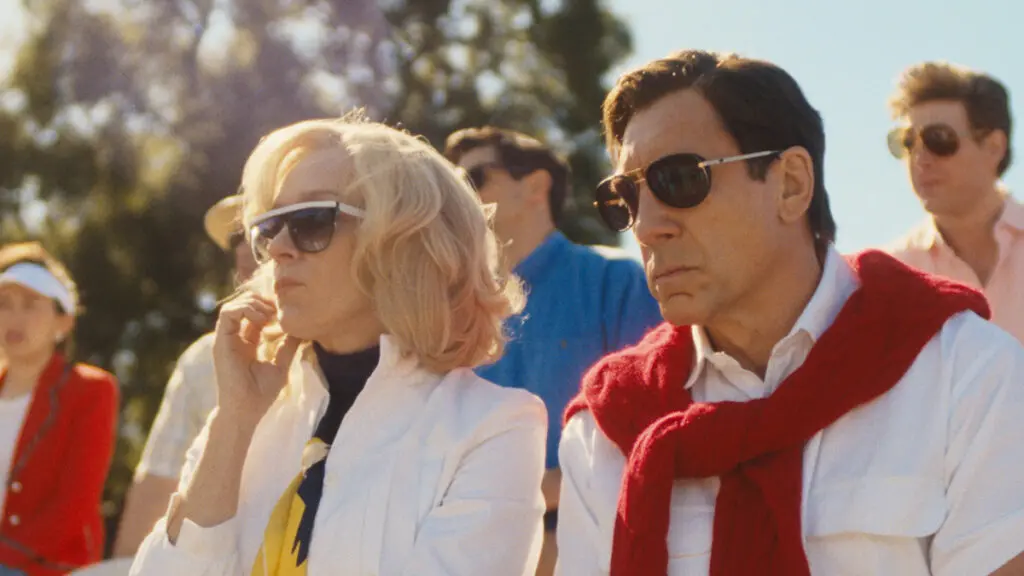Monsters: The Lyle and Erik Menendez Story is a true story, based on witness testimony, audio recordings, and court transcripts from the real case, so it’s ending was never going to offer any surprises. Indeed, Episode 9, “Hang Men”, is mostly a procession of events we already knew were coming.
But the point of a finale like this isn’t to change the outcome or surprise the viewer, but to colour in the details and offer up some kind of position on the verdict, which finds both brothers sentenced to life in prison without the possibility of parole in lieu of the death penalty. The validity of their abuse claims, the circumstances of their trial – the second – and the horrific nature of their crimes are all considered, and no easy resolutions are provided since, frankly, there are none.
How OJ Simpson’s Trial Impacted Lyle and Erik Menendez
OJ Simpson, his own story told in the first season of Ryan Murphy’s American Crime Story anthology, The People v. O.J. Simpson, was acquitted on October 3, 1995. His trial dominated the news cycle and set a dangerous precedent for how justice need not apply if the accused can simply afford a crack legal team and develop a catchphrase. In response, District Attorney Gil Garcetti needs a win, and Lyle and Erik Menendez are destined to be it.
Lyle sees OJ’s acquittal as a blueprint. He thinks they need a slogan and as much publicity as possible, but public sentiment around the brothers has begun to shift, in part because of Lyle’s book deal with writer Norma Novelli. The published work, put together from recorded conversations, is incredibly damning for the defence, and to make matters worse the brothers’ attorney, Leslie Abramson, is becoming a public laughing stock.
The first trial of Lyle and Erik, broadcast live on the then-new CourtTV – which is now TruTV – whipped up a media frenzy and resulted in a hung jury, but since then OJ’s trial has moved the goalposts. By the time of this finale, it is a foregone conclusion that Lyle and Erik will be convicted.
Life In Prison Without the Possibility of Parole
There are only two options for the Menendez brothers – life in prison without the possibility of parole, or the death penalty. They get the former.
The trial is ugly. The jury is only allowed to deliberate on murder charges and not the lesser charge of manslaughter, and the claims of abuse raised by Leslie – who is fresh on the back of winning a previous trial with the exact same defence – are downplayed. Any testimony along those lines is severely restricted.
Stripped of any meaningful defence, prosecutor David Corn demolishes Lyle and Erik on the stand, and Leslie – she raises objections constantly, including to David simply saying “Hi” and is at one point instructed by the judge to stop paying hangman with Erik – makes matters worse.
The jury are forced to deliberate on the punishment. After one of the jurors suffers a heart attack, they are replaced by another who highlights the seriousness of leaning towards the death penalty if even some of what the brothers claim about their abuse is true. For that reason, after three days of deliberation, the sentence comes down and the brothers’ lives are spared. Their freedom, though, is forfeit.
The Significance of the Yacht Scene
One of the few meaningful flashbacks during the ending of Monsters: The Lyle and Erik Menendez Story occurs on a boat the family chartered to go shark fishing. Its captain testified during the trial that there “wasn’t much interaction” between the parents and their children. Lyle and Erik had claimed that this was due to the fear that if they remained in the proximity of their parents, they would be killed by them.
However, the finale suggests that the separation was because Lyle and Erik were busy planning the murder. The series has by no means depicted Jose and Kitty in a favourable light, but there’s no sense here that the boys were in any immediate danger. Their attack was premeditated, and their parents were none the wiser that its planning was occurring right under their nose.
This scene is Ryan Murphy and co. making their position clear, or at least as clear as they’re going to.
RELATED:




